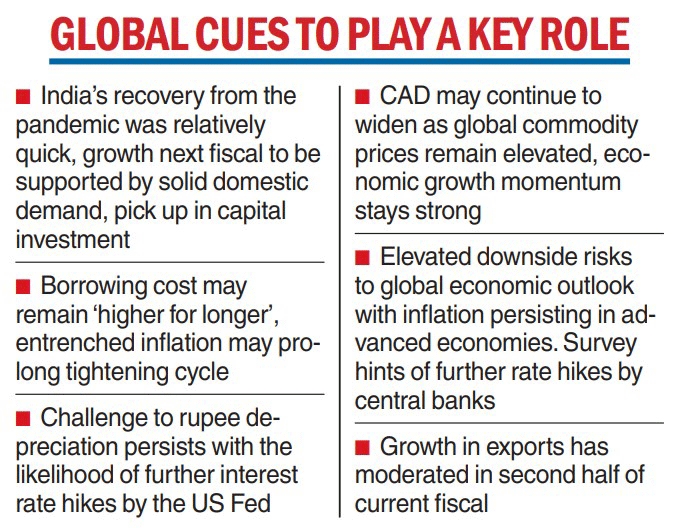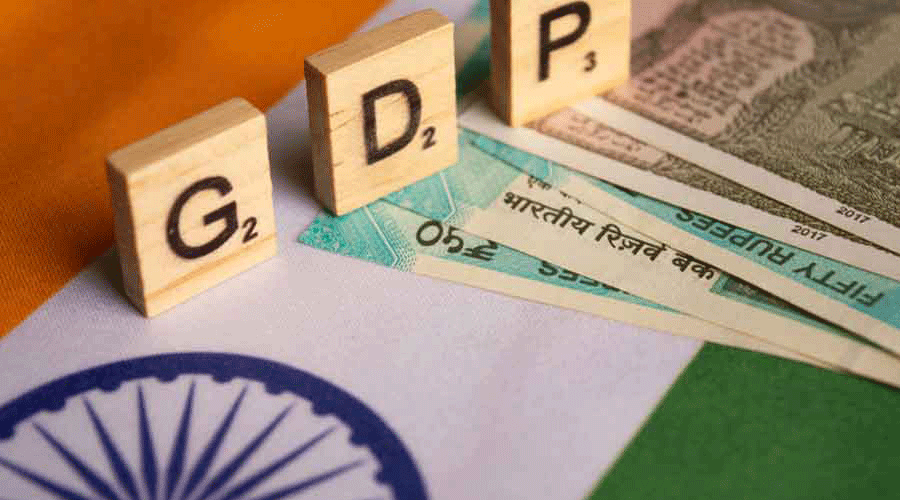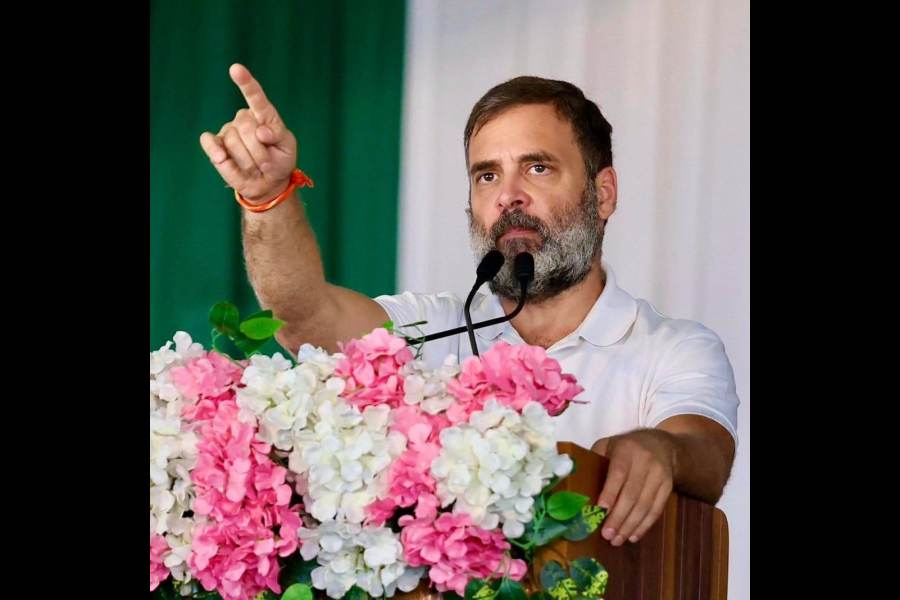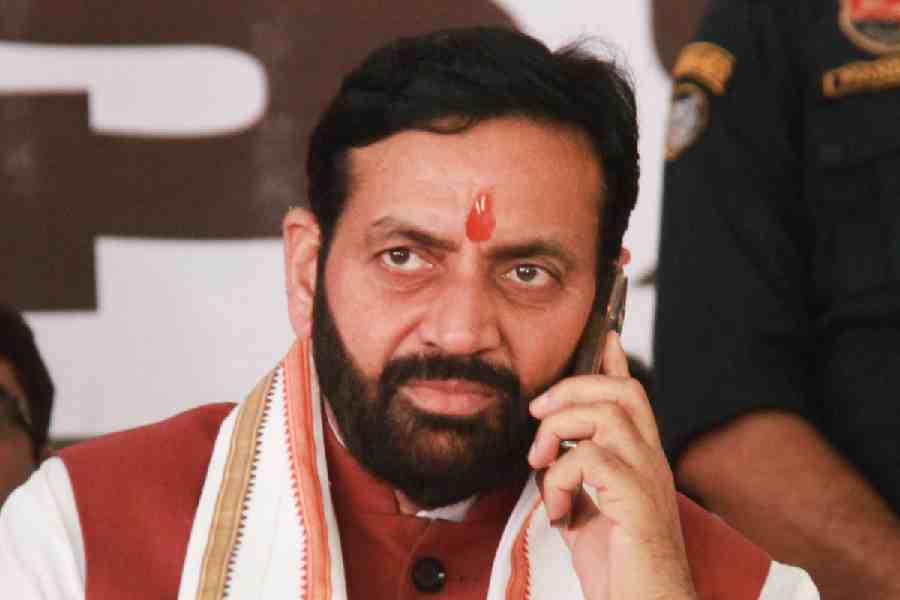The Economic Survey of 2022-23 has projected a baseline GDP growth rate of 6.5 per cent for 2023-24, which is lower than the expected growth of 7 per cent in this fiscal and the lowest in the past three years.
The nominal GDP growth for next fiscal is set at 11 per cent. Analysts said the growth figures appear to have been calculated on the basis of 4.5 per cent inflation next fiscal. The RBI has forecast inflation at 5 per cent in the first quarter of next fiscal and 5.4 per cent in the second quarter, and the survey calculations assume inflation will taper off over the rest of the fiscal.
Economists said the survey projections were “optimistic” and global factors would have an impact on the domestic growth story.
The actual outcome for real GDP growth will probably lie in the range of 6 per cent to 6.8 per cent, depending on the trajectory of economic and political developments globally.
The scenario of subdued global growth presents two silver linings – oil prices will stay low and India’s CAD will be better than currently projected. The overall external situation will remain manageable.
India Ratings and Research said the survey’s “assessment of real GDP growth at 6.5 per cent appears to be optimistic. A glance at the first advanced estimate of FY23 GDP clearly indicates that the growth momentum witnessed in the first half is unlikely to sustain in the second half and the GDP growth is expected to drop to 4.5 per cent in the second half of this fiscal from 9.7 per cent in the first half.”
“Despite the recovery in domestic economic activity, which is not yet broad-based, protracted global drags in the form of still-elevated prices, shrinking corporate profitability, demand-curbing monetary policies and diminishing global growth prospects weigh on output. This will put pressure on the domestic growth story, which still lacks the next lever of secular growth,” Madhavi Arora, lead economist, Emkay Global Financial Services, said.
N.R. Bhanumurthy, vice-chancellor of Bangalore-based Dr. B.R. Ambedkar School of Economics University, said “the survey assumes inflation to be around 4.5 per cent to 5 per cent in FY24 as global recession would cool down commodity prices including oil as the present inflationary pressure in the economy is largely imported”.
He warned a fall in agriculture growth could push up inflation in the economy that may affect the projections.
“The agriculture growth in FY24 is likely to come down after three years of nearly 4 per cent growth. I doubt we will have that level of comfort as key inputs including land, labour and capital could see a decline in agriculture sector.”
“There is a prediction of La Nina as well that could impact rainfall. With construction activity picking up, many rural workers will move to cities, which would result in area under cultivation coming down. This could spur domestic inflationary pressure,” he said.
The entrenched inflation may prolong the tightening cycle and the borrowing costs may stay ‘‘higher for longer’’, the Survey said.
The RBI’s projection of retail inflation at 6.8 per cent in the current fiscal is neither too high to deter private consumption nor so low as to weaken inducement to invest, the Survey said.
Core inflation is expected to remain sticky at nearly 6 per cent because of the second-round impact of the supply shocks experienced earlier this year, the survey said.











